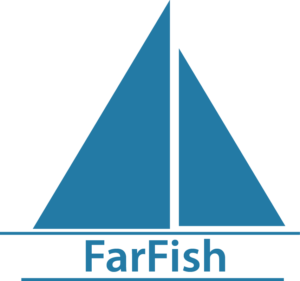The FarFish team
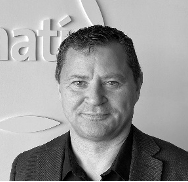
FarFish Coordinator
Jónas R. Viðarsson
Director of Division at MATIS
Email: jonas@matis.is
Jónas is the director of division of value creation at MATIS. He holds degrees in Fishery science, Environmental Science and Resource Management, as well as having extensive industry experience in fisheries as a fisherman and fish processing worker. Jónas has long experience in coordinating and participating in large multidisciplinary national and international research & innovation projects.
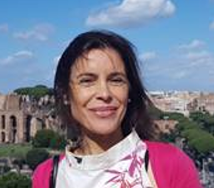
Stakeholder engagement and socio-economic impacts
Rosa Chapela
Head of fisheries Socioeconomic Department at CETMAR
Email: rchapela@cetmar.org
Rosa is the head of the head of the Fisheries Socioeconomic Department at CETMAR, with a background in law, sustainable resource management, fisheries and aquaculture. Rosa uses her passion for the marine environment to lead the FarFish stakeholder engagement team. Rosa is skilled at facilitation cooperation among diverse parties, leading projects to secure sustainable resource management. Throughout FarFish Rosa will work with stakeholders and researchers to facilitate participatory processes in the project.
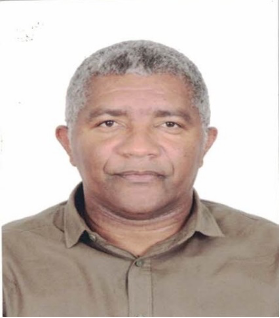
Cape Verde case study
Benvindo D´Oliveira Fonseca
Technician at IMAR, I,P (ex INDP)
Email: Benvindo.Fonseca@indp.gov.cv
Benvindo holds a degree in Industrial freezing Engineer at Technical Institute for Fisheries Industry from Astrakhan, Russia (1996). Post graduated in Management of Fisheries Company and Marketing at United Nation University in Iceland in The Fisheries training Program (2001). Master in Maritime Affairs specialized in Integrated Coastal and Ocean Management at World Maritime University in Malmo, Sweden (2007). Director of Promotion of Fisheries Development Department of INDP – National Institute for Fisheries Development (2001-2005). Executive Director of Fish Complex of Cova Inglesa in Sao Vicente (2009-2017). Case Study Leader of the EU Project FarFish and local representative of the POGO (Partnership for the Observation of the Global Ocean) program since 2017. Currently a technical employee at IPIMAR a new recently created institute of the Sea and with great experience in project manager.
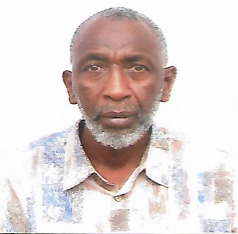
Mamadou Diallo
Head of COREWAM
Email: mlsdiallo@gmail.com
Mamadou holds a PhD in Biological Oceanography, Option Fisheries and Aquaculture. He combines a strong experience as fisheries biologist and marine conservation in Senegal, but also in West Africa. He participated in the development and the implementation of many research and development projects and programmes related to fisheries management, advocating for sustainable livelihoods for local communities, the conservation of endangered species and the establishment of marine protected areas. Mamadou is involved in the Intergovernmental Conference on a legally binding international instrument under the UNCLOS on the Conservation and Sustainable Use of marine biological diversity of areas beyond national jurisdiction.
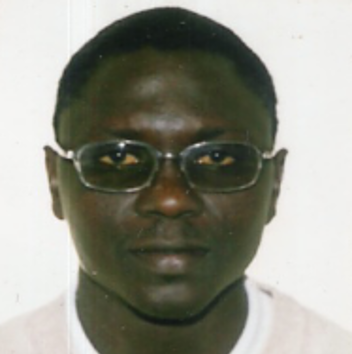
Ndiaga Thiam
Coordonnateur de programme à l’ISRA/CRODT et Chargé de mission à la DS/ISRA
Email: ndiagathiam@hotmail.com
Mr Thiam est chercheur biologiste des pêches au Centre de Recherches Océanographiques de Dakar-Thiaroye (ISRA/CRODT). Il est Maître de recherché CAMES. Au sein du CRODT, Mr Thiam coordonne depuis 2013 le programme intitule ‘Gestion durable des Ecosystèmes et des Ressources. Il est également chargé de mission sur les Productions halieutiques et Aquacoles auprès du Directeur scientifique de l’Institut Sénégalais de Recherches Agricoles (ISRA).
Mr Thiam a une large experience en matière de coordination de projet. Il a coordonné un bon nombre de projets/programmes nationaux et internationaux. En termes de production scientifique, Mr Thiam a publié beaucoup d’articles dans des revues à renommée internationale. Il est membre de plusieurs Comités/Commissions à l’échelle nationale et internationale.
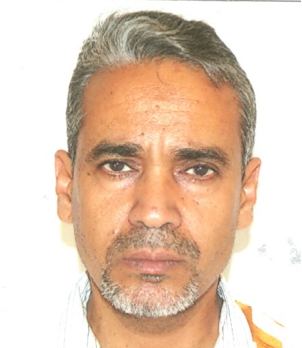
Khallahi Brahim
Scientific advisor at IMROP
Email: Khallahi.Brahim@gmail.com and medfall_khall@yahoo.fr
Khallahi holds a degree in Fisheries Engineering and obtained a dotorate degree from the University of Brest. He joined the Mauritanian Institute of Oceanographic and Fisheries Research (IMROP) in 1992, where he has for example worked on the study of the demersal fisheries in Mauritania and on the ecology/biology of sharks in Mauritania. He is currently a scientific advisor to the Director of IMROP.
Between 2011 and 2014, Khallahi worked as an international consultant for the coordination on behalf of UNEP of the Biodiversity, Habitat and Water Qulaité component of the Canary Current Large Marine Ecosysteme Project, which covers seven countries in the West African region, from Morocco to Guinea. This has been an opening on environmental problems in general and has allowed to develop skills in the field of Environmental and Social Impact of Hydrocarbon Studies with participation in several studies.
Khallahi is a member of the Mauritanian Scientific Committee for Scientific Monitoring of the Fisheries Partnership Agreement and member of the Scientific Council of Arguin Bank National Park (the largest marine protected area in West Africa). He is also a member of Mauritanian team in CECAF Working Group. Khallahi has coordinated several research projects at IMROP on fisheries and Marine Protected Areas.
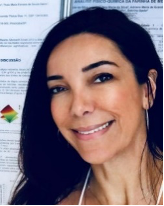
SW-Atlantic High-Seas case study
Juliana Antunes Galvão
Research Specialist in Freshwater fish and Seafood – “Luiz de Queiroz” College of Agriculture. University of São Paulo – Brazil
Email: jugalvao@usp.br
Juliana is biologist and her PhD was about traceability in fisheries production chain. Her research is mainly focused on quality and sustainability in fisheries from water to dish. She is the coordinator of the Group of Study and Extension on Quality and Technological Innovation in seafood (GETEP/ESALQ/USP). In FarFish she is the Case Study Leader of the SW – Atlantic high – Seas case study – Area FAO 41.
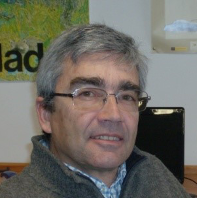
Biological knowledge, stock assessment and self-sampling
Karim Erzini
Professor, Faculdade de Ciências e Tecnologia, Universidade do Algarve, Portugal
Email: kerzini@ualg.pt
Karim is the head the Fisheries, Biodiversity and Conservation (FBC) group of the Centre of Marine Sciences (CCMAR; www.ccmar.ualg.pt) . He teaches courses on Population Dynamics, Fisheries Biology and Ecology, Stock Assessment and Fisheries Technology and is the local coordinator of the Mundus International Master of Science in Marine Biological Resources (www.imbrsea.eu). His research interests include small-scale and recreational fisheries, marine protected areas, conservation and management.
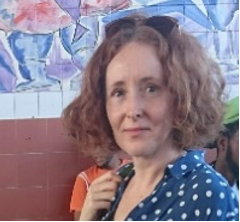
Governance issues in SFPA and high Seas fisheries
Ingrid Kvalvik
Senior researchet at Nofima
Email: Ingrid.kvalvik@nofima.no
Ingrid is a senior researcher at Nofima – the Norwegian Institute of Food, Fisheries and Aquaculture Research and an adjunct professor at the Norwegian college of fishery science, UiT/the Arctic University of Norway. She holds a Ph.D. in political science on high seas fisheries management. Her research is focused on analysis of regulatory systems and the role of institutions within national and international fisheries and aquaculture management. In FarFish she leads the WP on governance- and value chain analysis, where she is leading the analysis of the governance of the SFPA and high seas fisheries cases.

Value chain analysis in SFPA and high Seas fisheries
John Isaksen
Scientist at NOFIMA’s dept. of Industrial economics
Email: john.isaksen@nofima.no
John is an economist that holds a PhD in social science, where the performance effects of upstream vertical integration in the Norwegian fish processing industry where studies. He has 20 years of research experience at Nofima, within both national and international projects, where evaluating managerial measures within fishery and supply chain management have been in the core of research problems.
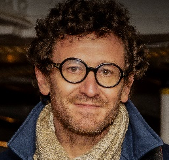
Value chain analysis in SFPA and high Seas fisheries
Pierre Failler
Professor of Economics, Director of the Centre for Blue Governance at the University of Portsmouth
Email: pierre.failler@port.ac.uk
Pierre is the Director of the Centre for Blue Governance. He is coordinating complex research projects with multidisciplinary teams for more than 25 years in Europe, Africa, Asia, Caribbean and Pacific coastal countries (more than 40 to date) in collaboration with national research institutions and universities and a close link with policy bodies. In FARFISH, he is working, with the help of Grégoire Touron and Cindy Cornet, with research institutes in Seychelles, Senegal, Mauritania and Cabo Verde.
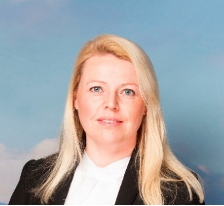
Karin Olsen
Scientist at UiT/the Arctic University of Norway
Email: Karin.olsen@uit.no
Karin holds a Master of Science in Fisheries and Aquaculture from the Norwegian College of Fishery Science/UiT The Arctic University of Norway. She has long experience in marketing of Seafood from Norway, both national and globally. Before joining the FarFish project, she was a managing director in a Norwegian company working with buying, producing and selling fresh prawns.
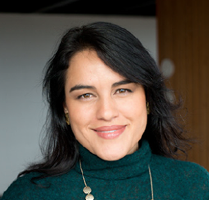
Audit of Management Recommendations and policy recommendations
Juliana Arias Hansen
Researcher at Sjokovin
Email: juliana@sjokovin.fo
Juliana has an MA in International Economics and Development from the University of Applied Sciences in Berlin – HTW. She has a broad background in market research, finances and economic analysis. Juliana has strong experience in researching aspects relating to fisheries and aquaculture. She has been working on the EU FP7 project MareFrame and the EU H2020 projects ClimeFish and Aquavitae. Currently she is WP leader on the EU H2020 project FarFish
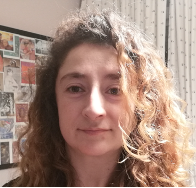
Modelling and Decision Support tools
Margarita Rincón
Head scientist at Oceanographic Spanish Institute IEO
Twitter: Margarita_RHEmail: Margarita.rincon@ieo.es
Margarita is a head scientist at IEO. She has a background on mathematics and her PhD was about mathematical applications to Fisheries Science. Since then, her research is mainly focused on stock assessment models and the incorporation of environmental drivers on them. She has long experience participating in national and international research and innovation projects and she is an official national member of the ICES groups for assessment WGHANSA and WGMIXFISH (Working Group on Southern Horse Mackerel, Anchovy, and Sardine and Working Group on Mixed Fisheries Advice). In FarFish she has been using her mathematical knowledge and skills to provide relevant tools and support to the case studies.
Researchgate: https://www.researchgate.net/profile/Margarita_Rincon_Hidalgo

Capacity building and dissemination
Mary Frances Davidson
Deputy Director of UNESCO GRÓ – Fisheries Training Programme
Email: mary@groftp.is
Mary Frances Davidson is the Deputy Director of the UNESCO GRÓ Fisheries Training Programme, where she is responsible for the administration of the six-month programme and other capacity building initiatives related to developing sustainable fisheries. Mary Frances Davidson has a wide-ranging experience in environmental science, sustainability, education, development, and administration. Her research background centers around higher education for sustainability, programme evaluation, institutional capacity building, and implementation of the United Nations Sustainable Development Goals. She began working at the Fisheries Training Programme in 2011, and since that time her responsibilities have focused on international fisheries development, including coordinating short courses in developing countries, strategic planning, programme monitoring and evaluation, and instruction on sustainability, gender mainstreaming in development, research project design and academic writing.

Stakeholder engagement and socio-economic impacts
Duarte Vidal
Research Scientist at CETMAR
Email: dfernandez@cetmar.org
Duarte is a social anthropologist with educational skills, specializing in human ecology, social change and small-scale fisheries. He has participated in numerous initiatives and research projects related to fisheries management and stakeholder interaction driven to bring fishers to science from the integration of scientific and local knowledge. For several years, he was member of the working team of the spin-off ‘Fismare, Innovation for Sustainability’ and the Marine Resources and Fisheries Research Group from the University of A Coruña (ex-RMyP). He is currently part of the Socioeconomic Fisheries Department at Centro Tecnológico del Mar – Fundación CETMAR, being also member of the ICES-Working Group Resilience and Marine Ecosystem Services, the Marine Sustainability Research Group (SuMar) at the University of A Coruña and the Galician Anthropology Association (AGANTRO).
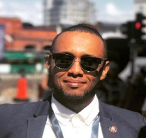
Yannick Roucou
Legal Advisor at SFA
Email: yroucou@sfa.sc
Yannick is the Legal Advisor at the Seychelles Fishing Authority (SFA). Yannick holds an LL.B in Law with the University of London and an LL.M in International Maritime Law with the IMO International Maritime Law Institute. He is the case study leader for Seychelles.
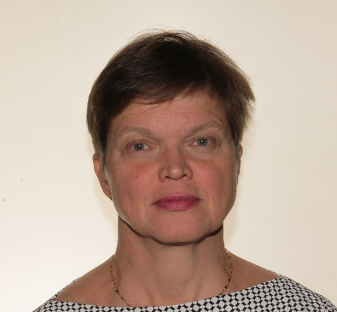
Michaela Aschan
Professor at UiT/the Arctic University of Norway
Email: michaela.aschan@uit.no
Michaela Aschan is Professor in Fisheries Biology and Management at the Norwegian College of Fisheries Science, UiT the Arctic University of Norway, since 2006. She serves as Vice Dean with responsibility for researcher training at the Faculty of Biosciences, Fisheries and Economics. She has assembled multidisciplinary teams for solving societal challenges and has wide experience from national and EU projects (now coordinator of ClimeFish), ICES Working Groups and Marine Stewardship Council (MSC) certifications. Her research covers several scientific areas including climate driven changes and resilience in the marine ecosystem, climate adaptation in fisheries and aquaculture, stock assessment and population biology of shellfish; fish and benthic community structure; and challenges in fisheries regulation and management.

Modelling and Decision Support tools
Jamie Lentin
CEO of Shuttle thread Ltd.
Email: lentinj@shuttlethread.com
Jamie Lentin is a Freelance Software Developer at Shuttle Thread Limited, developing data-rich web applications and services using open-source tools for research projects. Jamie brings over 10 year’s experience of developing bespoke data management and pipeline solutions to FarFish. Before Shuttle Thread he was a Principal Software Engineer at the BBC, and has a B.Sc from Imperial College London and M.Sc from University of Manchester. Jamie is also an active open source developer, and has contributed code to all manner of projects, from Javascript user interface widgets to the Linux kernel.
